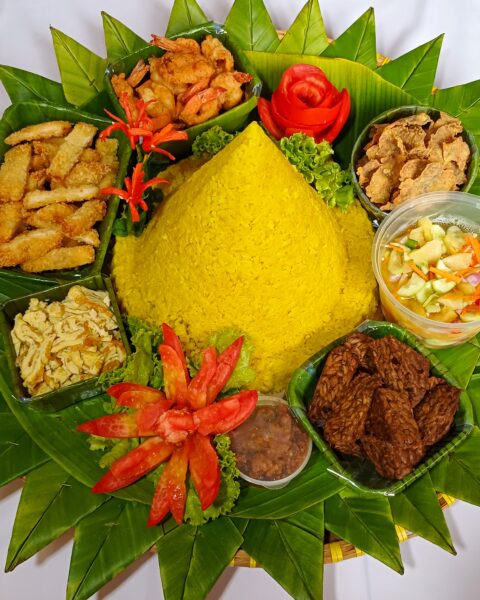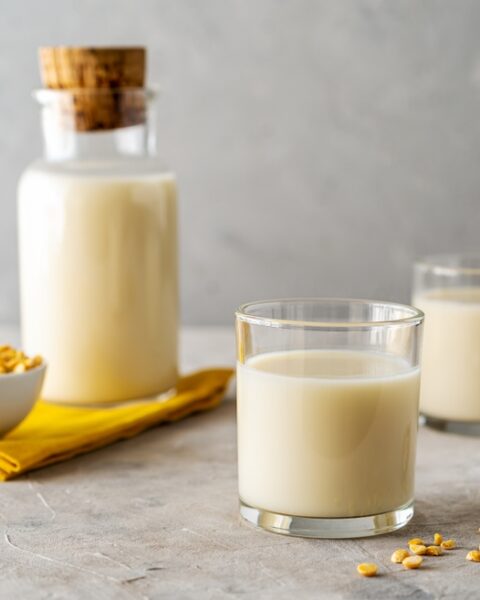We often stick to familiar fruits like apples and bananas, but exploring uncommon fruits can reveal some surprising health benefits. These lesser-known options are packed with nutrients and antioxidants that can enhance your diet in unexpected ways. From boosting your immune system to providing essential vitamins, these unique fruits offer more than just new flavors. Check out these uncommon fruits and find out how many you have already tried and are willing to try!
Contents
- 1 Ackee
- 2 Rambutan
- 3 Salak (Snake Fruit)
- 4 Buddha’s Hand
- 5 Mangosteen
- 6 Soursop (Graviola)
- 7 Cherimoya
- 8 Jabuticaba
- 9 Camu Camu
- 10 Langsat
- 11 Lucuma
- 12 Chokeberry (Aronia)
- 13 Marula
- 14 Longan
- 15 Loquat
- 16 Finger Lime
- 17 African Horned Cucumber (Kiwano)
- 18 Sapodilla
- 19 Star Apple (Cainito)
- 20 Baobab
- 21 More From RetailShout
- 22 14 Natural Ways to Keep Pests Out of Your Garden
- 23 13 Decorating Missteps That Can Make a Room Feel Smaller
Ackee
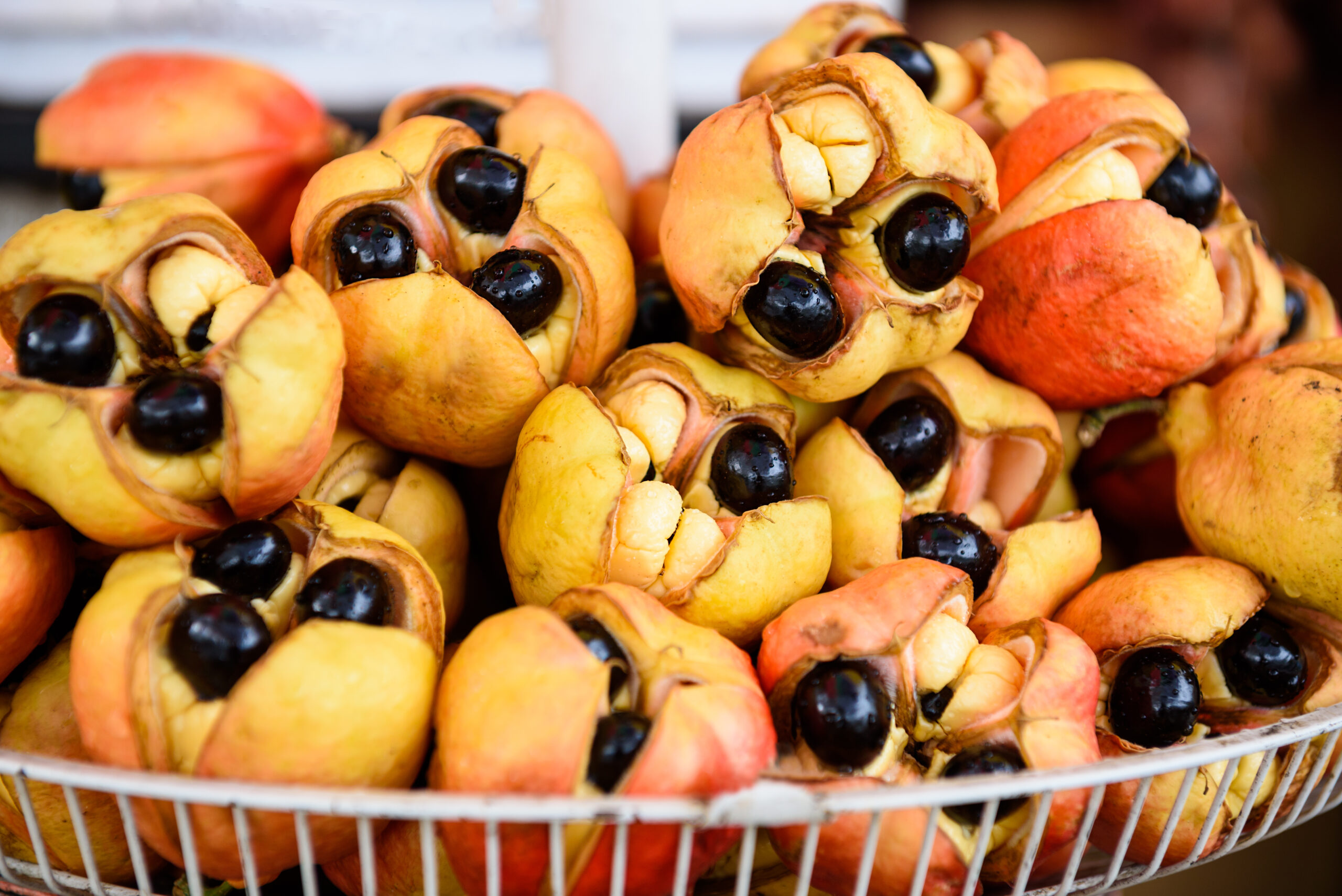
Ackee, native to West Africa and popular in Jamaica, is a unique fruit rich in essential fatty acids. Its bright red pods open to reveal soft, yellow flesh that, when properly prepared, is a nutritious source of vitamin C and protein. Ackee is known for its heart-health benefits, helping to lower cholesterol levels and support cardiovascular function. However, unripe ackee contains toxins, making proper preparation crucial. Its balanced nutrient profile makes it an energy-boosting fruit that also aids in muscle repair and immune function.
Rambutan
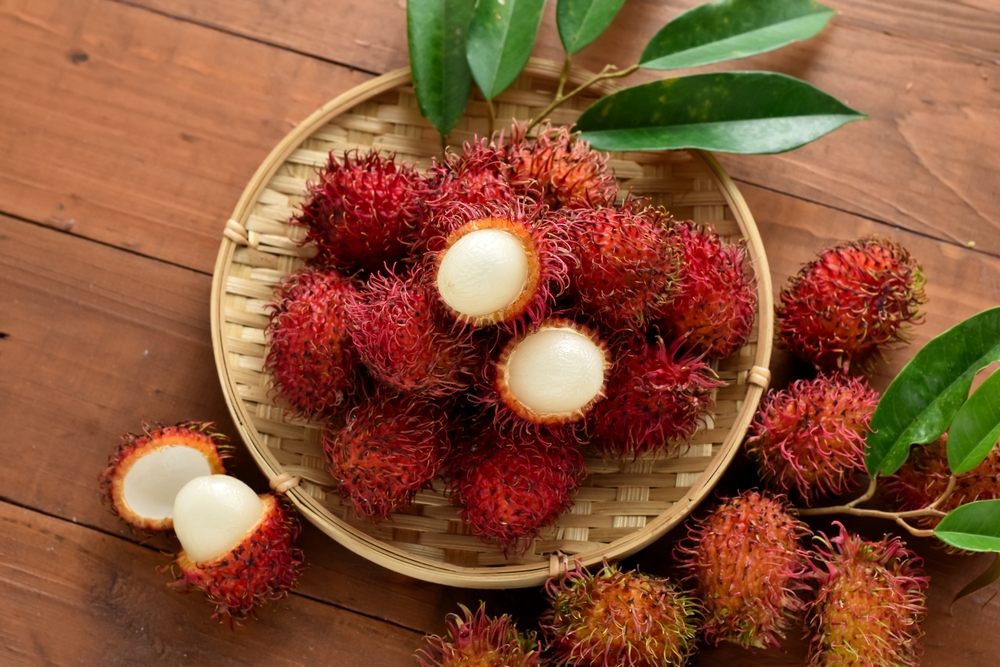
Resembling a spiky lychee, rambutan is packed with vitamin C, manganese, and fiber, making it an antioxidant powerhouse. This tropical fruit promotes collagen production, enhancing skin elasticity and wound healing. It’s also known for improving digestive health by regulating bowel movements and supporting gut bacteria. With its antibacterial properties, rambutan boosts the immune system and fights off infections. Its high water content makes it a hydrating snack that helps replenish electrolytes.
Salak (Snake Fruit)
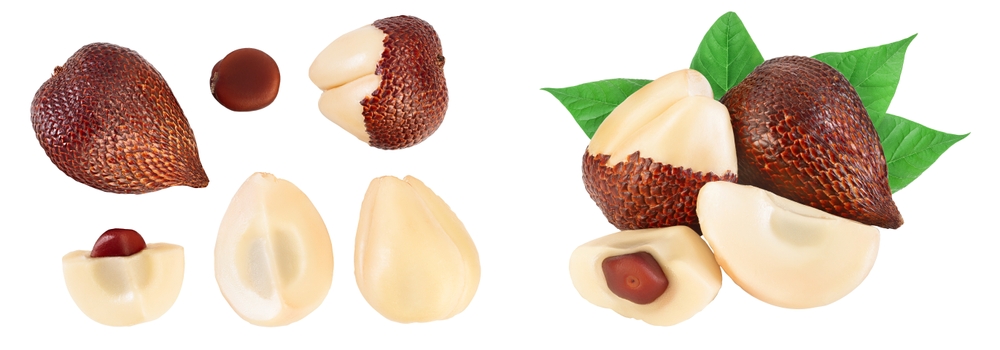
Salak, commonly known as snake fruit due to its scaly skin, is a Southeast Asian gem with a crunchy, sweet-tart flavor. It’s loaded with antioxidants, including flavonoids and lycopene, which protect cells from oxidative stress. This fruit is an excellent source of potassium, which helps regulate blood pressure and supports heart health. Salak also aids in weight management, as its high fiber content promotes satiety and improves digestion. Additionally, its tannins give it antimicrobial properties, enhancing gut health.
Buddha’s Hand
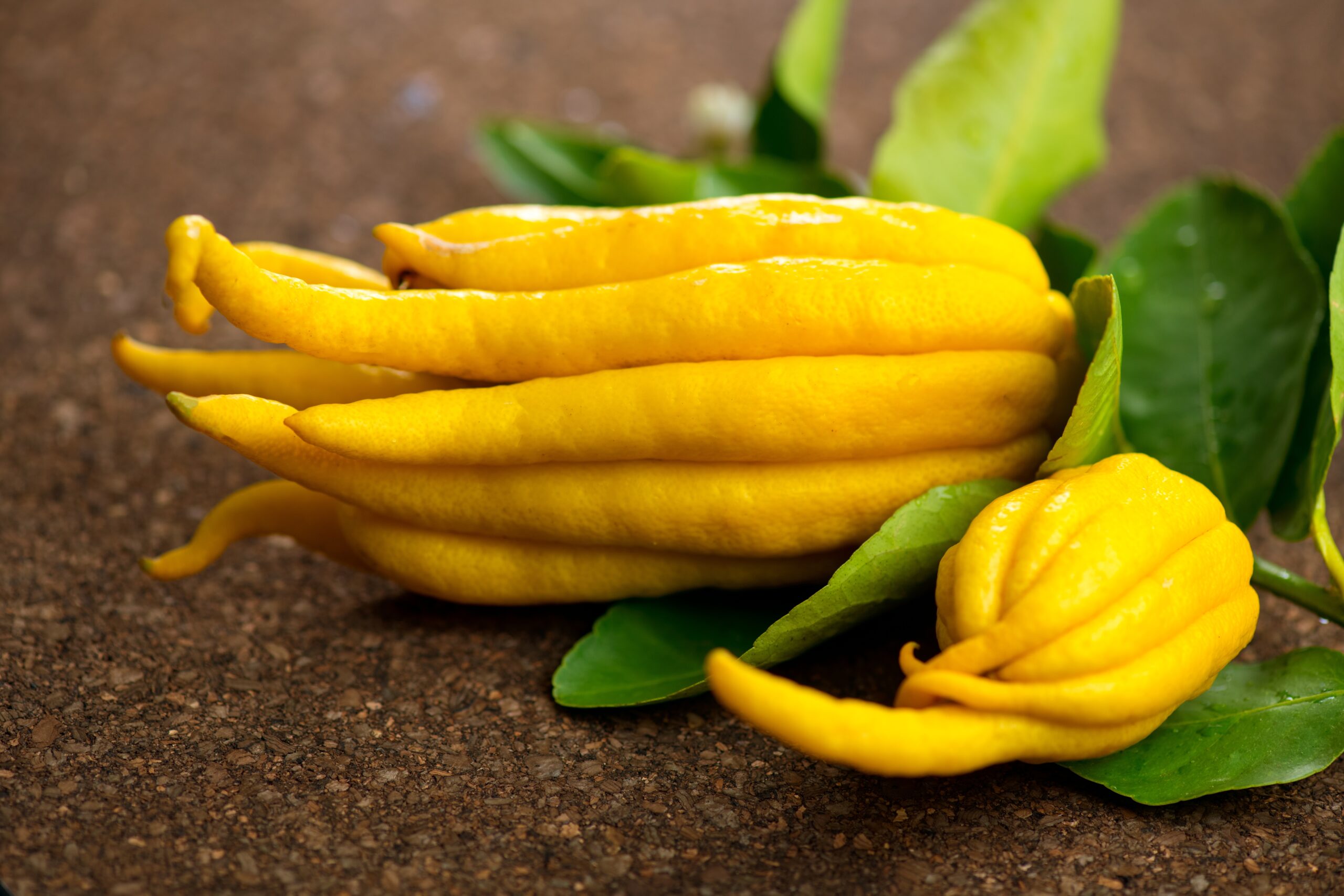
Buddha’s Hand is an ancient citrus fruit shaped like multiple yellow fingers, often used for zest or infusion. Its high levels of vitamin C provide immune-boosting benefits, while its natural anti-inflammatory properties make it beneficial for reducing pain and swelling. Buddha’s Hand also contains compounds like limonene, which may protect against certain types of cancer. The fruit is often used to alleviate digestive issues, as it acts as a mild natural remedy for bloating and indigestion. Its essential oils are also known to reduce stress and elevate mood.
Mangosteen
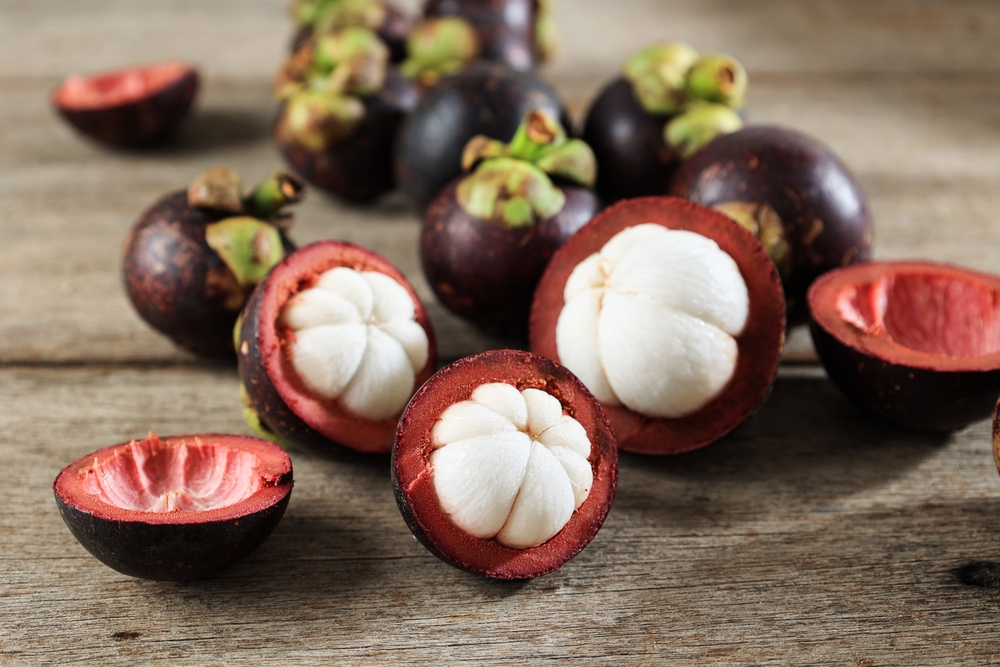
Known as the “queen of fruits,” mangosteen is prized for its juicy, slightly tangy taste and incredible health properties. It contains xanthones, a type of antioxidant with potent anti-inflammatory effects that can improve joint function and reduce chronic pain. Mangosteen also supports cardiovascular health by lowering cholesterol and regulating blood pressure. Its high fiber content promotes digestive regularity, while vitamin C enhances immune defense. Regular consumption is linked to healthier skin, reducing the appearance of acne and promoting a glowing complexion.
Soursop (Graviola)
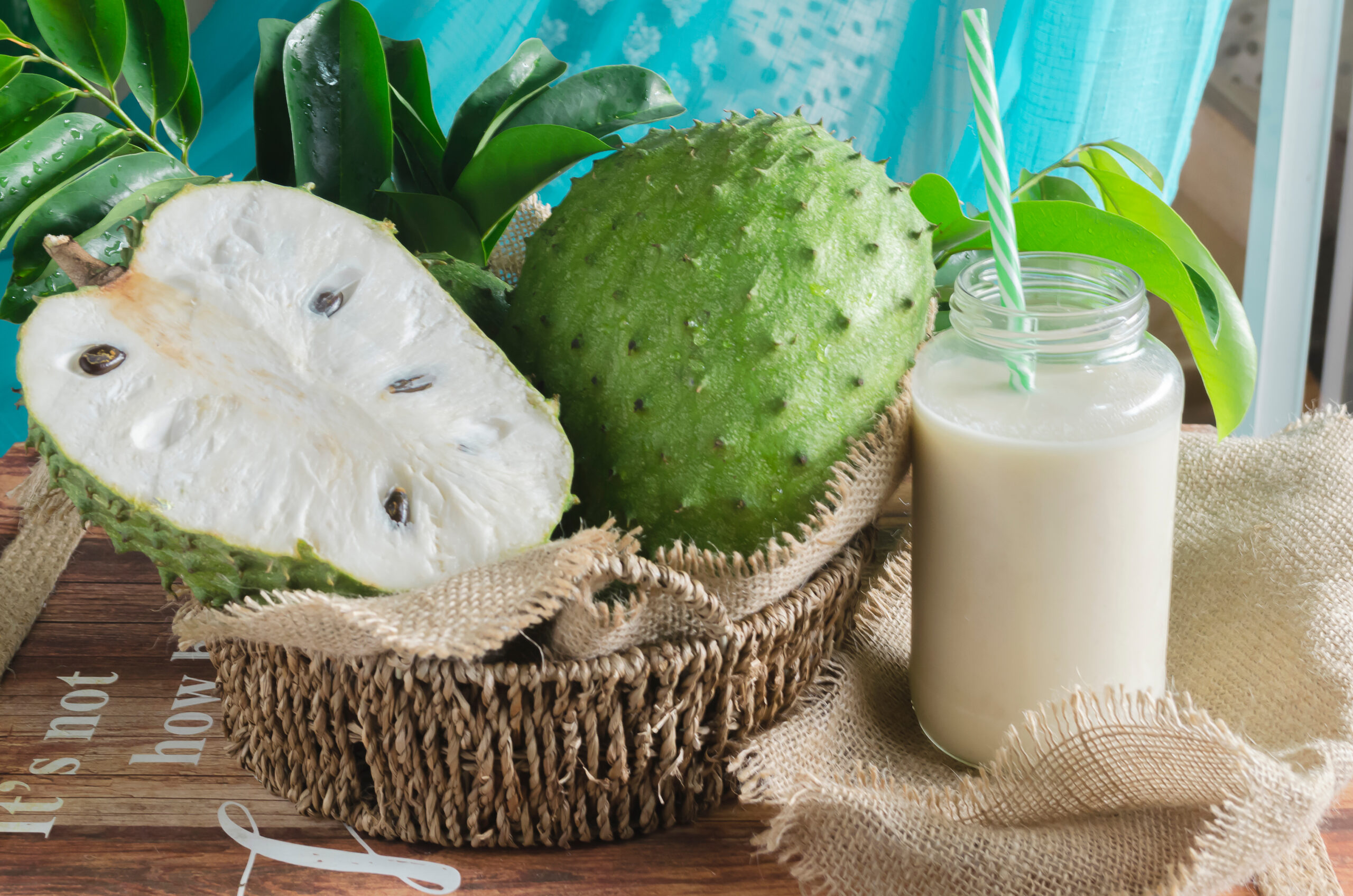
Soursop, or graviola, is a spiny green fruit with creamy white flesh, known for its impressive medicinal properties. Rich in vitamin C, soursop boosts immune function and protects against infections. It’s also packed with antioxidants that neutralize free radicals, reducing inflammation and potentially lowering cancer risk. Soursop has been traditionally used to relieve pain and reduce fever, making it a natural remedy for colds. Furthermore, it promotes gut health with its fiber content and can help alleviate constipation.
Cherimoya
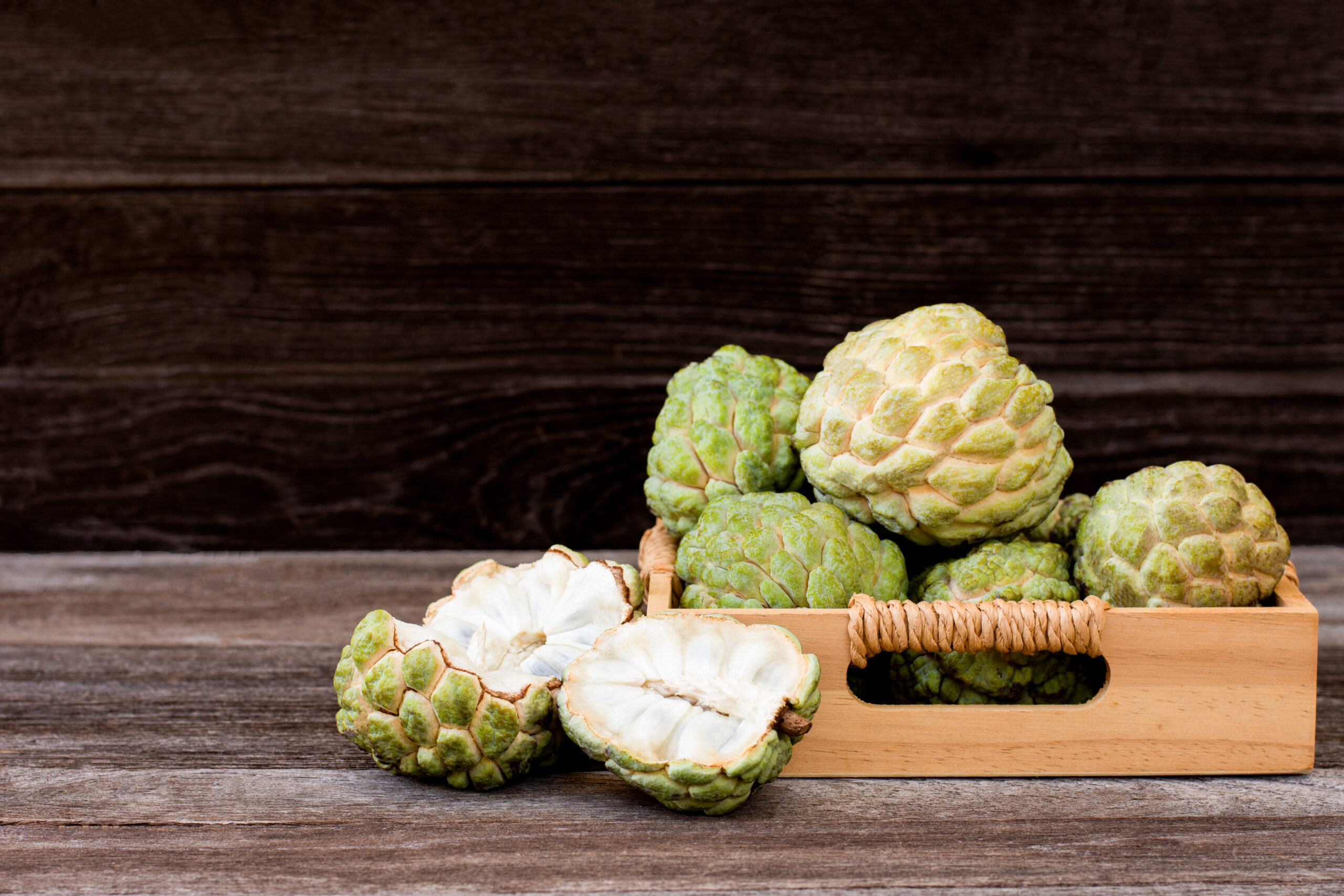
Often called the “custard apple” for its creamy texture, cherimoya is loaded with nutrients, particularly vitamin B6 and potassium. It’s known for supporting brain health by regulating mood and reducing symptoms of depression and anxiety. Cherimoya is also beneficial for heart health, helping to maintain healthy blood pressure levels. Its antioxidant properties help fight oxidative stress, while its fiber content promotes digestive health. Regular consumption of cherimoya may also support eye health due to its high levels of carotenoids.
Jabuticaba
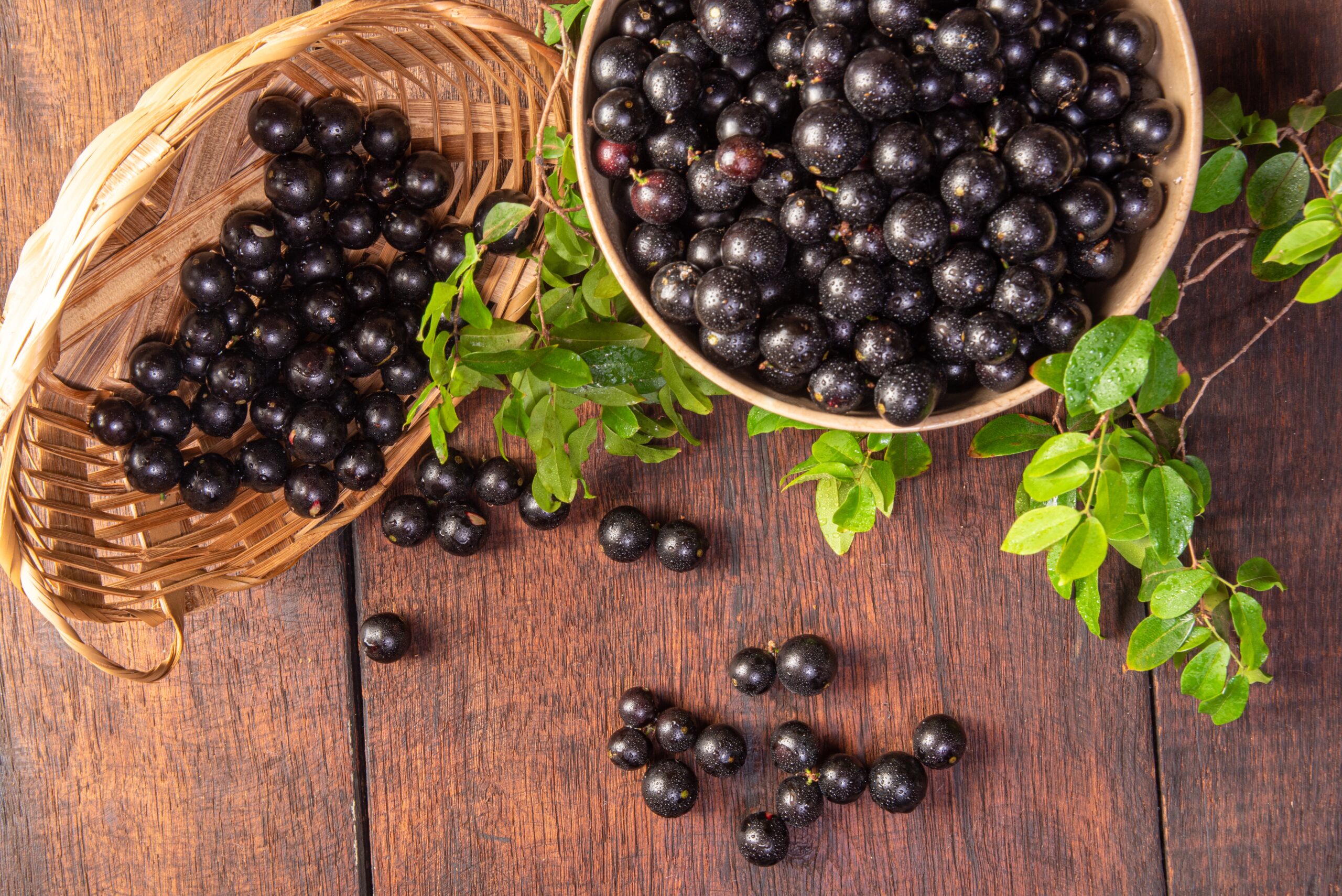
Jabuticaba is a Brazilian fruit that grows directly on the trunk of the tree, resembling dark purple grapes. Rich in anthocyanins, it has powerful antioxidant and anti-inflammatory properties, supporting cardiovascular health and reducing cancer risk. The fruit is often used in traditional remedies for asthma and sore throat due to its astringent properties. Jabuticaba also contains high levels of vitamin C and fiber, boosting immunity and promoting digestive health. Its skin contains compounds that may aid in controlling blood sugar, making it beneficial for those with diabetes.
Camu Camu
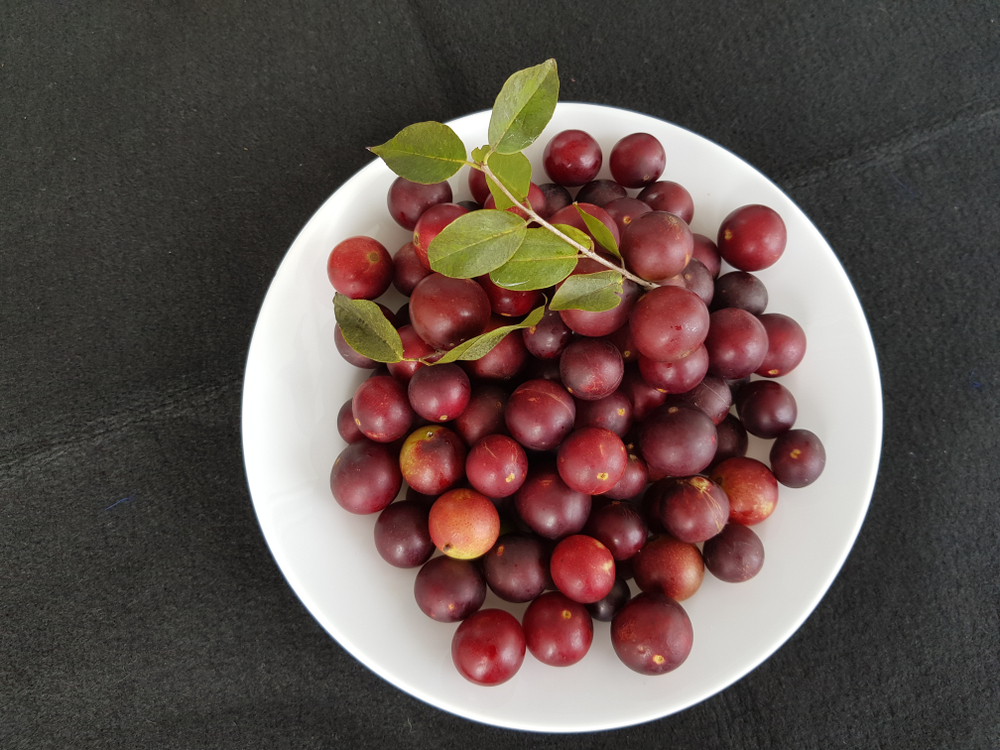
Camu camu is a small, sour fruit from the Amazon rainforest, known for its exceptionally high vitamin C content—one of the highest of any fruit. This potent antioxidant strengthens the immune system, supports skin health, and reduces inflammation. It’s also rich in flavonoids and carotenoids, which help protect the body from oxidative stress. Camu camu may aid in reducing anxiety and depression symptoms due to its calming effects on the nervous system. Additionally, it’s a great source of manganese, which supports bone health and metabolism.
Langsat
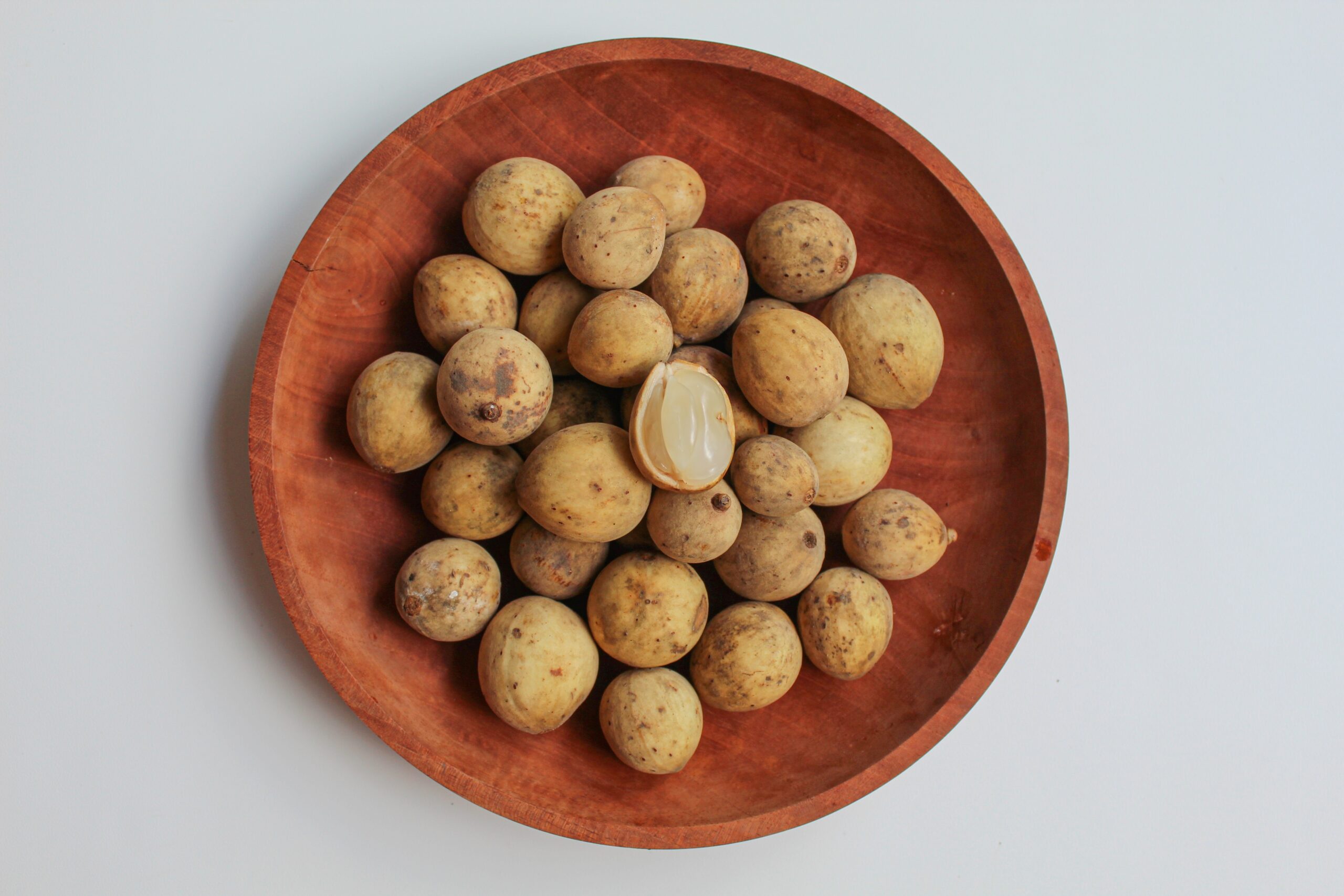
Native to Southeast Asia, langsat is a small, translucent fruit with a sweet and slightly sour taste. It’s rich in dietary fiber, which aids in digestion and helps regulate blood sugar levels. Langsat is also packed with B vitamins, supporting energy production and improving cognitive function. The fruit contains polyphenols that have antioxidant properties, helping to reduce inflammation and protect cells from damage. Its low-calorie content makes it a great option for those looking to manage their weight while still benefiting from its numerous nutrients.
Lucuma
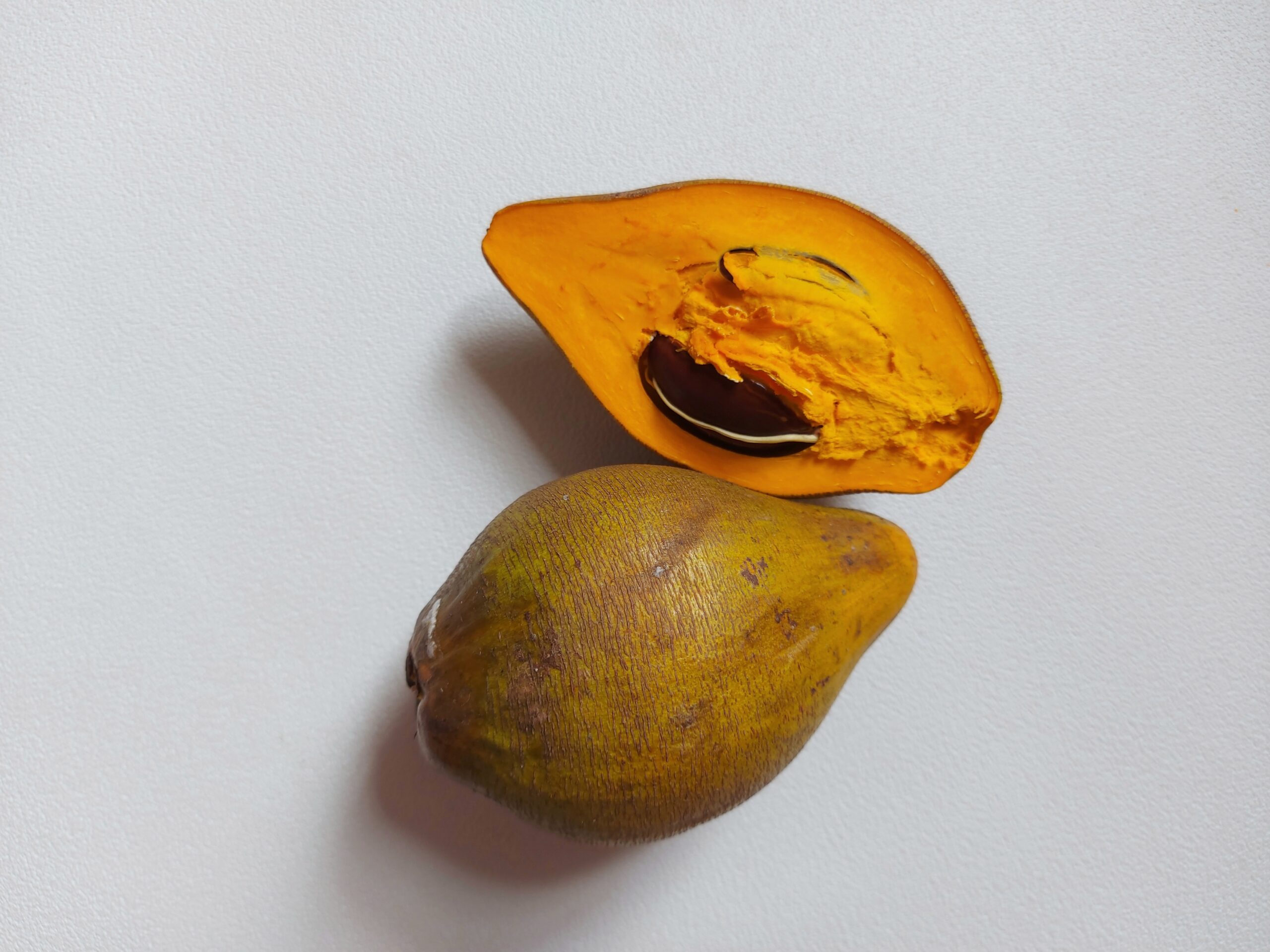
Lucuma is a Peruvian fruit with a sweet, maple-like flavor, often used as a natural sweetener. It’s high in beta-carotene, which supports eye health and may reduce the risk of macular degeneration. Lucuma is also a good source of fiber, promoting digestive health and helping to maintain healthy cholesterol levels. The fruit’s antioxidants, including polyphenols, help reduce inflammation and support immune function. Lucuma is also beneficial for skin health, promoting wound healing and providing anti-aging benefits.
Chokeberry (Aronia)
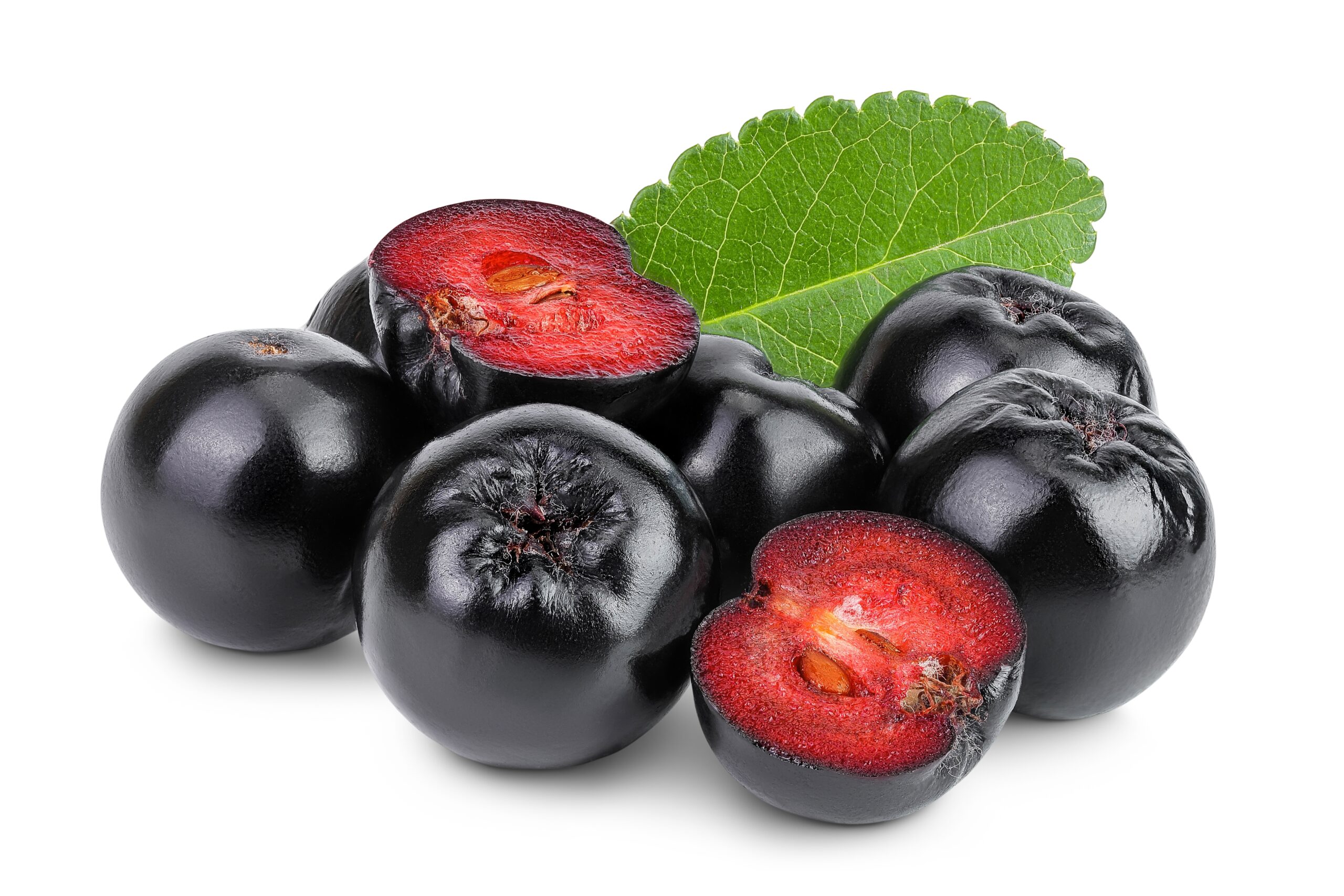
Chokeberries are small, dark fruits that pack a powerful antioxidant punch, particularly high in anthocyanins. These antioxidants support heart health by lowering cholesterol levels and reducing blood pressure. Chokeberries are also known for their anti-inflammatory properties, which can reduce the risk of chronic diseases like diabetes and arthritis. They support digestive health due to their fiber content and may improve gut flora. Additionally, chokeberries are thought to enhance liver health by protecting the liver from oxidative stress and toxins.
Marula
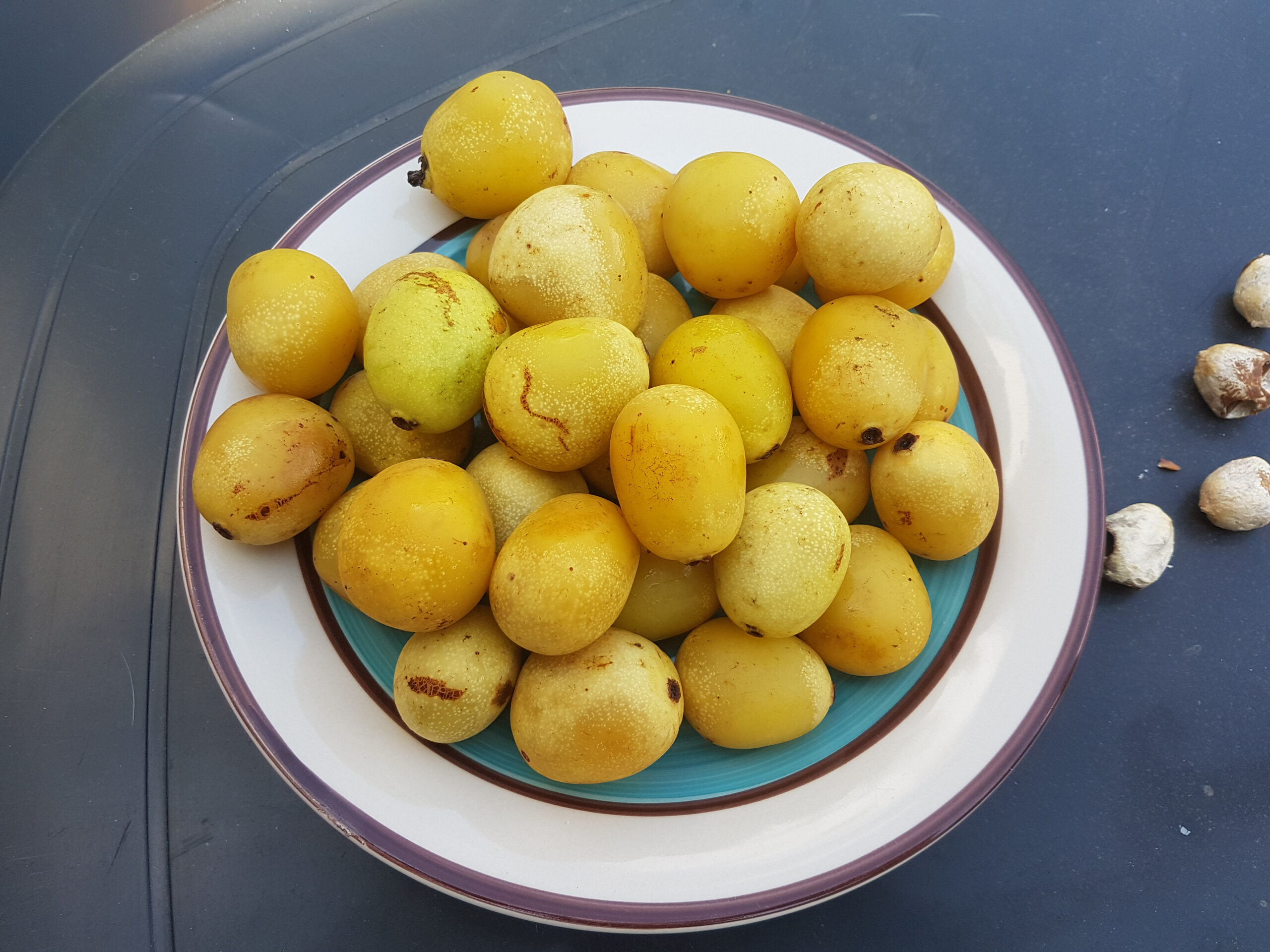
The marula fruit, native to southern Africa, is often used to produce oil, but its fruit is packed with vitamin C, offering a natural immune boost. It’s also high in antioxidants, particularly flavonoids and procyanidins, which help protect the skin from aging and environmental damage. Marula contains essential minerals like magnesium and potassium, which support heart and muscle function. Its antimicrobial properties make it useful in preventing infections and boosting skin health. Additionally, marula oil extracted from the seeds is popular for hydrating and nourishing the skin.
Longan
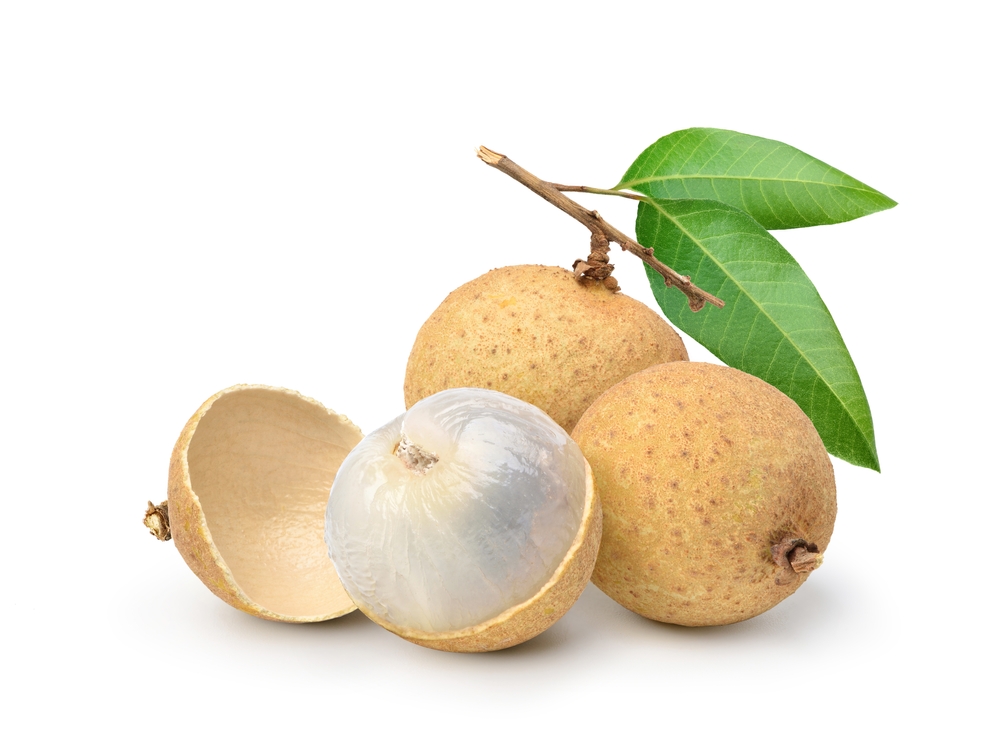
Longan, a small tropical fruit related to lychee, is revered for its high vitamin C content and ability to boost immunity. It’s also rich in antioxidants that help fight free radicals, supporting overall cellular health. Longan has been traditionally used in Chinese medicine to reduce stress and anxiety, promoting a calm mind and better sleep quality. The fruit is also beneficial for skin health, promoting a youthful glow and reducing the signs of aging. Its iron content supports healthy blood circulation and may help combat fatigue.
Loquat
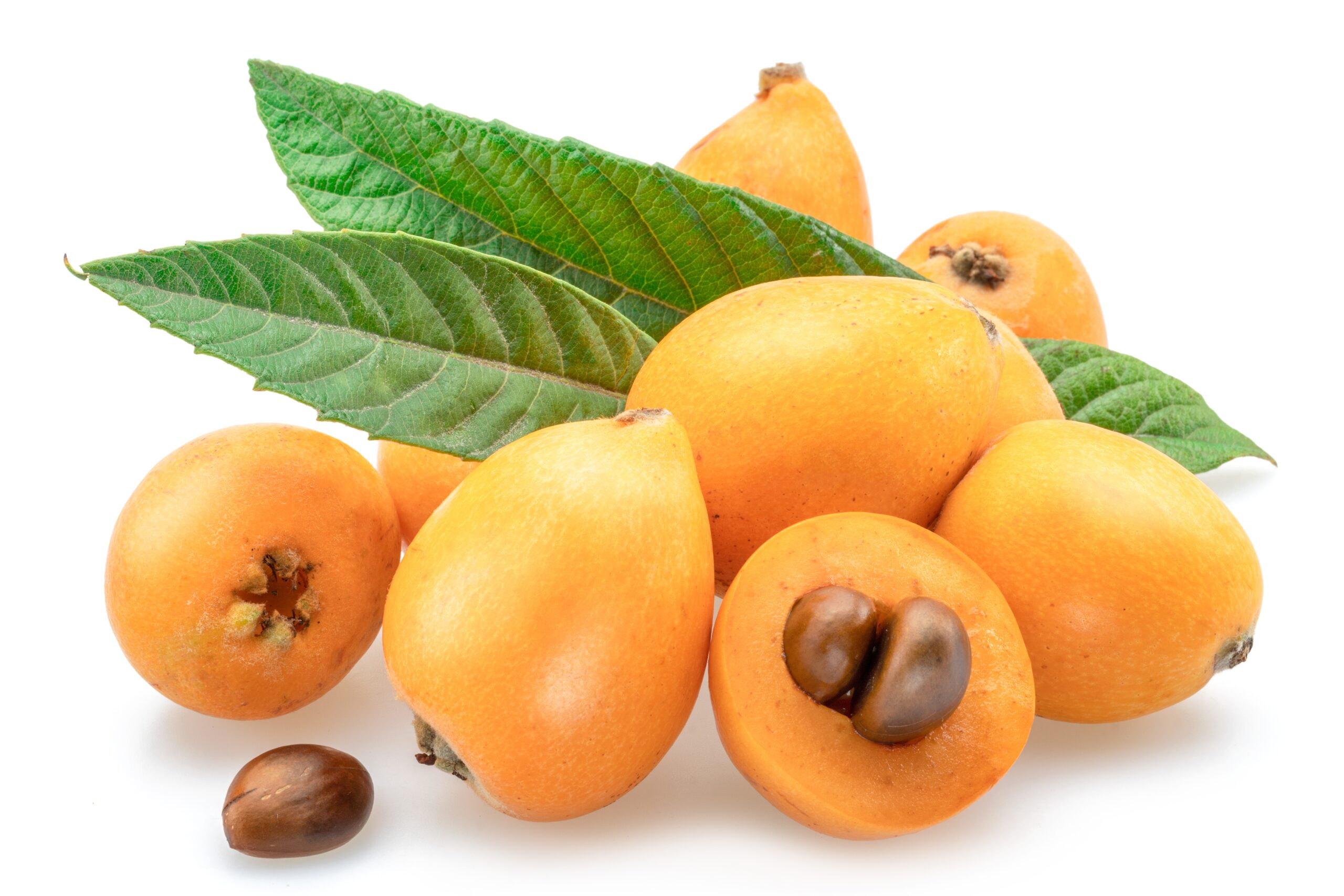
Loquats are small, yellow-orange fruits with a sweet and slightly tangy flavor, often found in Mediterranean and Asian cuisines. They are rich in vitamin A, supporting eye health and reducing the risk of macular degeneration. Loquats are also packed with antioxidants, particularly carotenoids, which protect cells from oxidative stress and may reduce cancer risk. Their high potassium content supports heart health by regulating blood pressure and reducing the risk of stroke. The fruit’s fiber content promotes digestive health and helps maintain healthy blood sugar levels.
Finger Lime
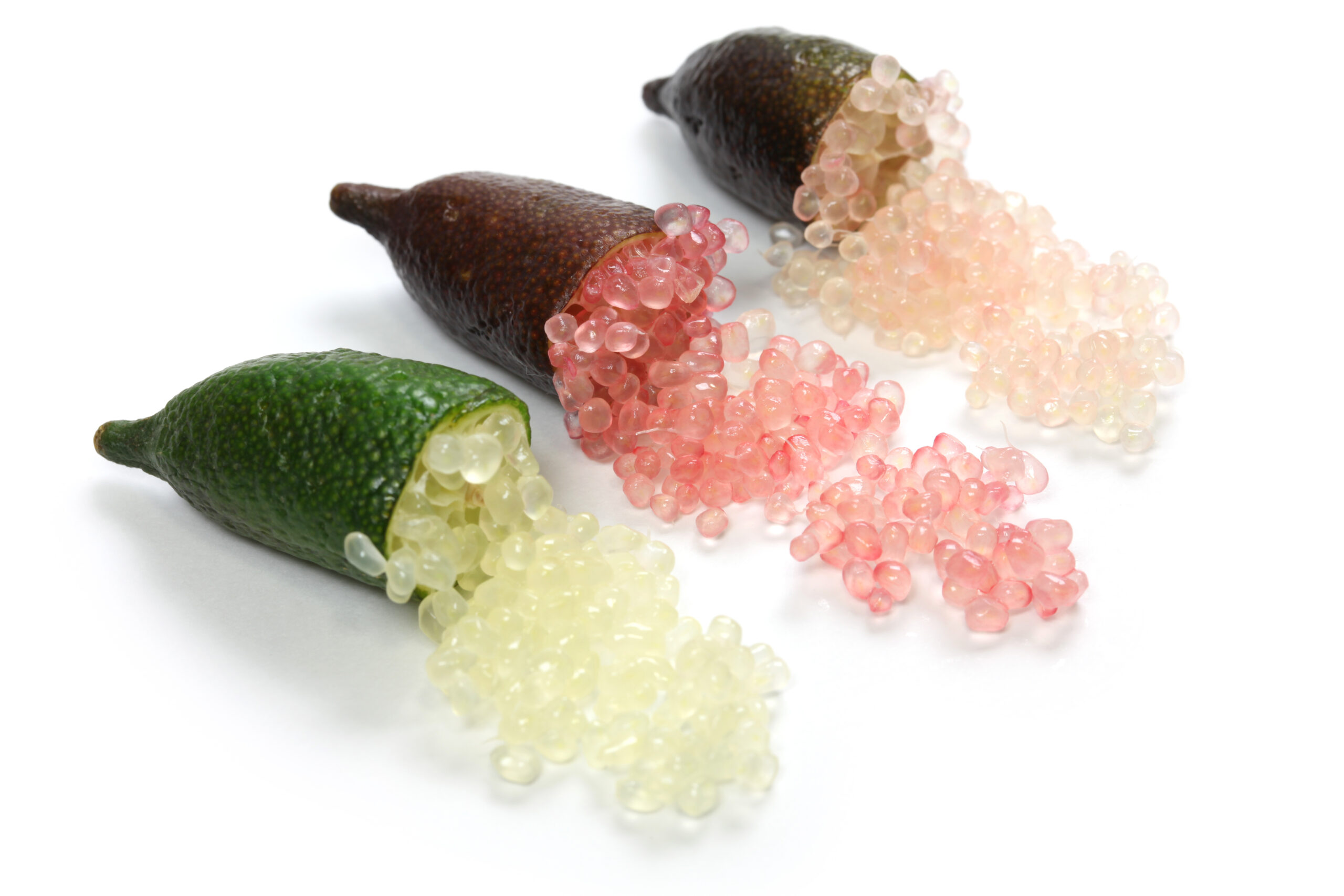
Native to Australia, finger limes are known for their caviar-like pulp that bursts with tangy flavor and a wealth of nutrients. High in vitamin C, finger limes boost immunity, support collagen production, and help heal wounds. They also contain folate, which is essential for healthy cell function and may prevent certain birth defects. Finger limes are rich in antioxidants that protect against inflammation and reduce the risk of chronic diseases. Their antimicrobial properties make them excellent for gut health, and they may even help balance the gut microbiome.
African Horned Cucumber (Kiwano)
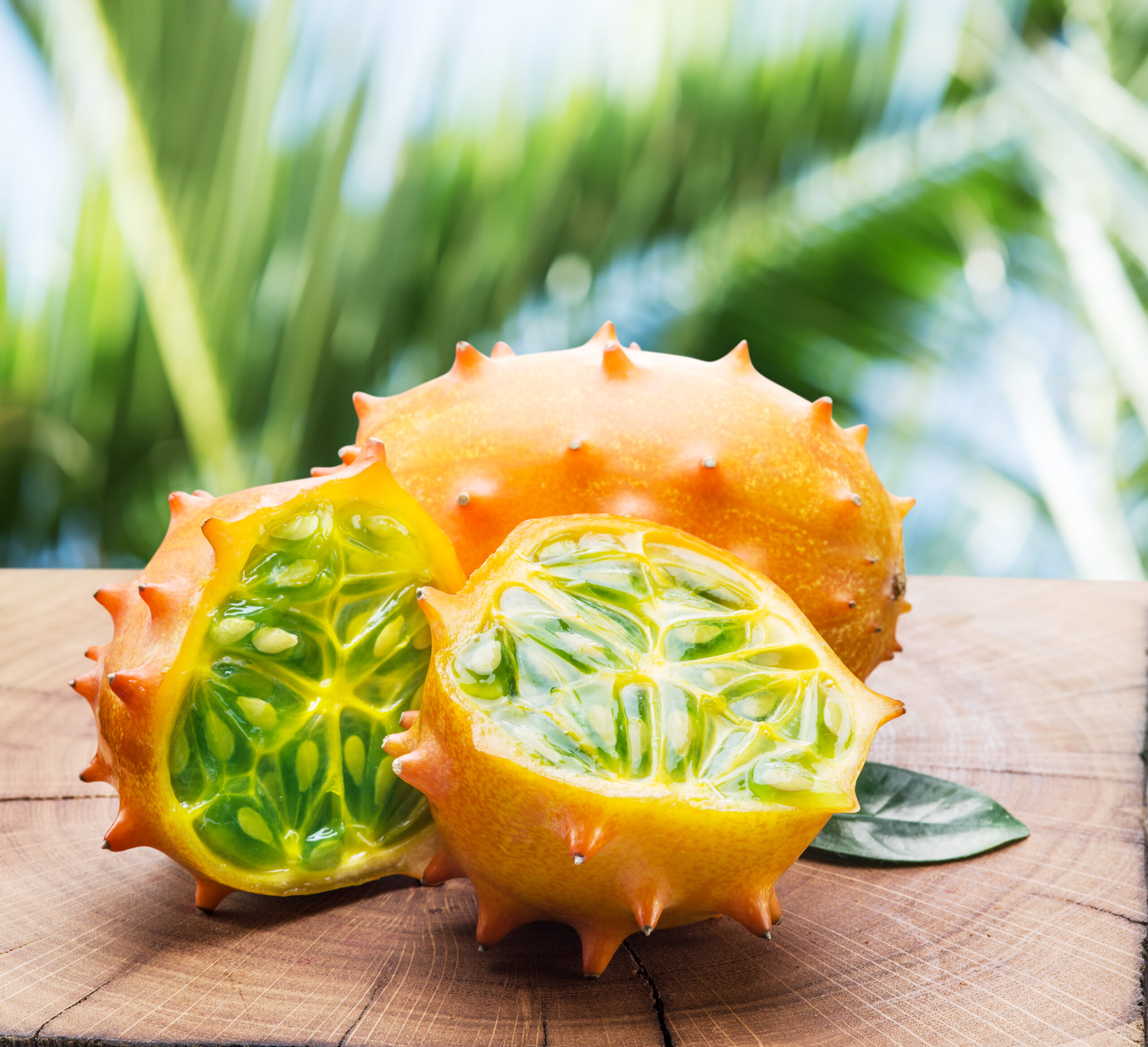
Kiwano, or African horned cucumber, is a spiky, bright orange fruit with a jelly-like interior packed with nutrients. It’s rich in vitamin C, supporting immune health, and vitamin A, promoting healthy skin and eyes. Kiwano is also hydrating, making it a great fruit for replenishing electrolytes and supporting kidney function. The fruit’s antioxidants help protect cells from damage, while its fiber content aids digestion and promotes gut health. Its seeds are a source of essential fatty acids, which support brain health and reduce inflammation.
Sapodilla
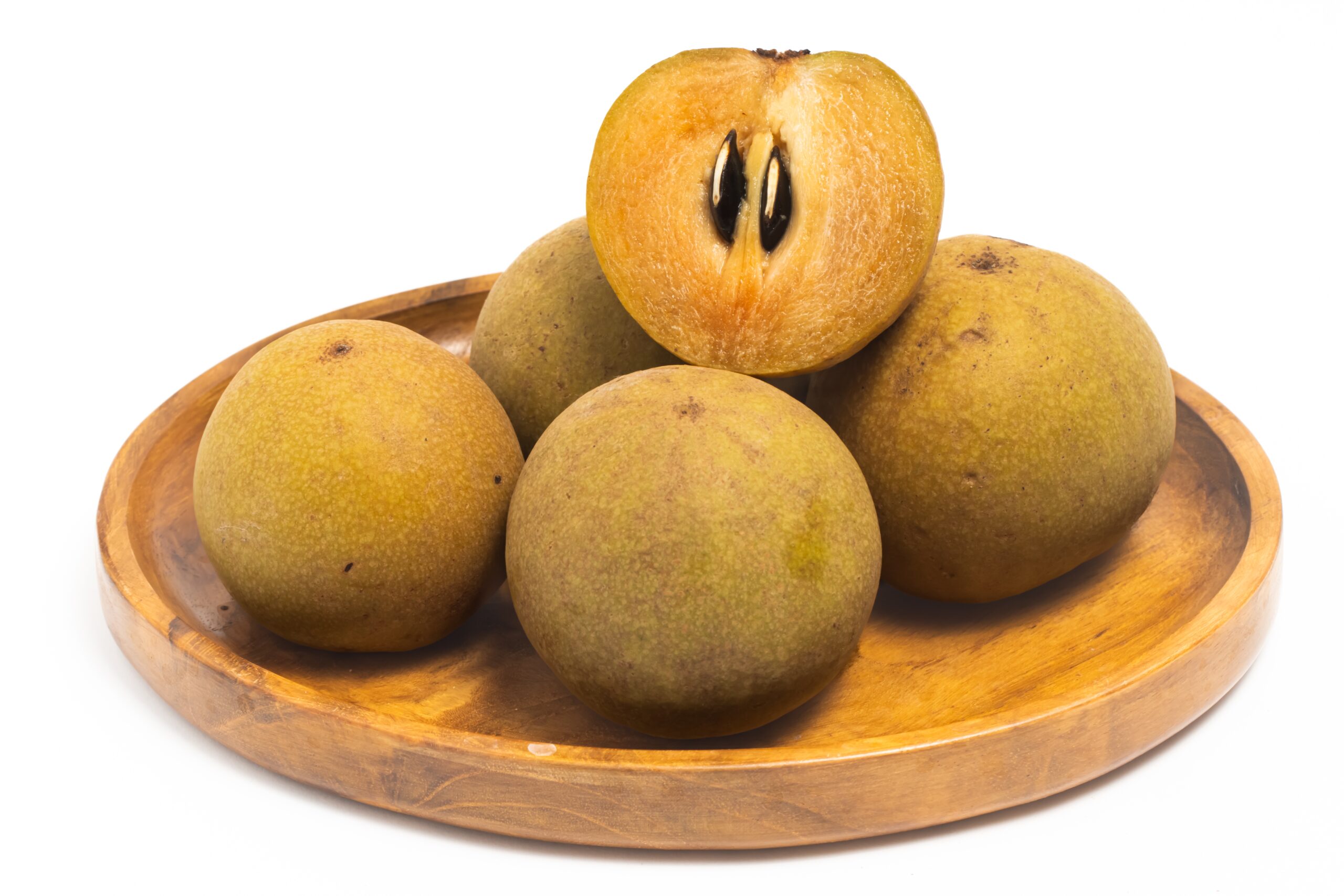
Sapodilla, a tropical fruit with a sweet, brown, granular flesh, is rich in dietary fiber, which promotes healthy digestion and prevents constipation. It’s also high in antioxidants like polyphenols and flavonoids, which protect the body from oxidative stress and reduce inflammation. Sapodilla is an excellent source of vitamins A and C, supporting vision and skin health while boosting the immune system. The fruit’s tannins have astringent properties, which help in reducing diarrhea and promoting gut health. Its natural sugars provide an instant energy boost, making it a great snack for active individuals.
Star Apple (Cainito)
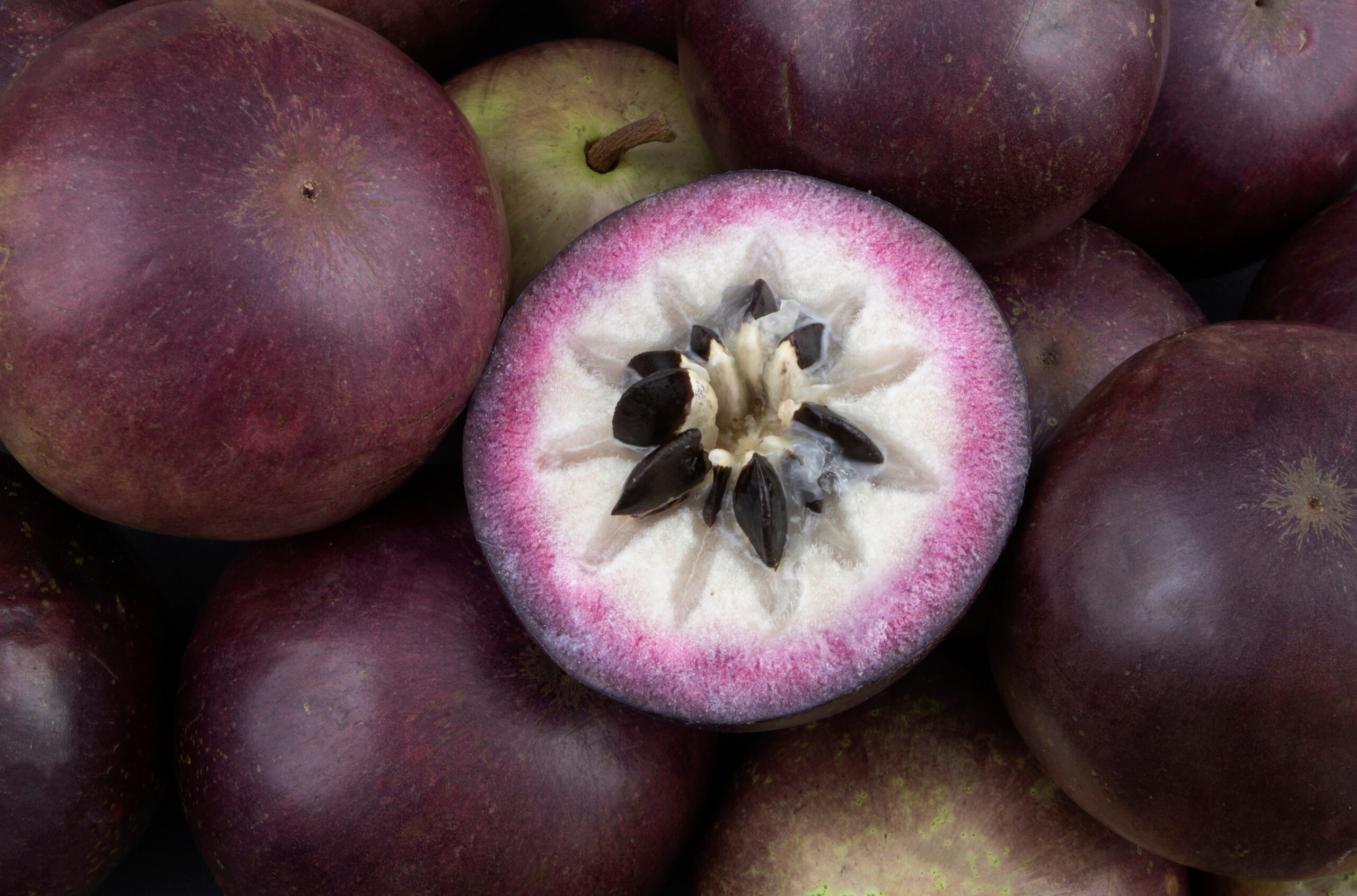
Star apple, also known as cainito, has a unique purple or green skin with a star-shaped pattern in its flesh. It’s rich in antioxidants, particularly polyphenols, which help reduce inflammation and lower the risk of chronic diseases. Star apple is also a good source of fiber, promoting digestive health and preventing constipation. Its vitamin C content supports immune function and skin health, while its potassium helps regulate blood pressure and maintain heart health. The fruit’s natural sugars provide a slow energy release, making it a satisfying and nutritious snack.
Baobab

Baobab is a fruit from Africa’s iconic baobab tree, known for its rich nutrient profile and powdery pulp. It’s high in vitamin C, providing a significant boost to immune function and collagen production. Baobab is also an excellent source of fiber, supporting digestive health and acting as a natural prebiotic to enhance gut flora. The fruit contains antioxidants that reduce inflammation and protect cells from damage. Additionally, baobab’s high calcium content supports bone health, making it a valuable fruit for maintaining strong bones and preventing osteoporosis.
This article originally appeared on RetailShout.
More From RetailShout
20 Frugal Mistakes That Actually End Up Costing You More

Cutting costs is often a smart move, but sometimes, trying to save a few bucks can backfire and end up costing more down the line. We’ve all been there, thinking we’re being thrifty, only to find out later that our frugal habits are actually draining our wallets. Read More.
14 Natural Ways to Keep Pests Out of Your Garden

Gardening is a labor of love, but nothing can spoil your hard work faster than unwelcome pests. Instead of reaching for harsh chemicals that can harm your plants and the environment, why not explore natural methods to keep your garden thriving and pest-free? Read More.
13 Decorating Missteps That Can Make a Room Feel Smaller

Ever walked into a room and felt like the walls were closing in? It might not be the size of the room, but the way it’s decorated. Certain decorating choices can unintentionally shrink your space, making it feel cramped and cluttered. Read More.




